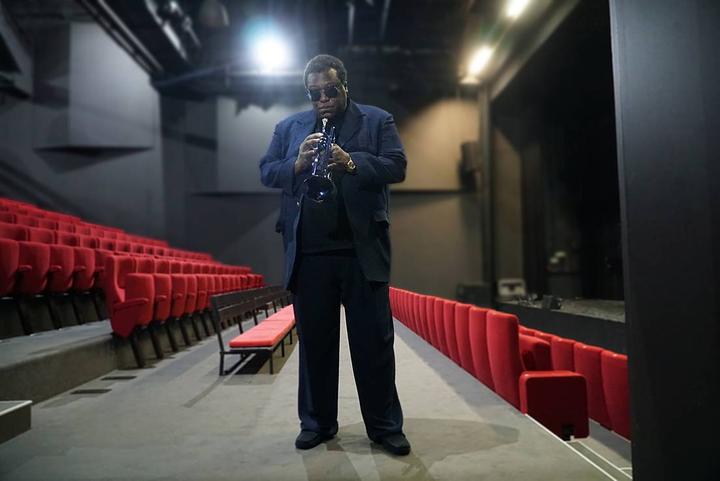Wallace Roney: trumpet
Emilio Modeste: tenor saxophone
Oscar L. Williams II: piano
Curtis Lundy: bass
Eric Allen: drums
"The evolution of jazz was like the evolution of religion, that Moses to Jesus to Mohammed to Baha'u'llah was like Louis Armstrong to Roy Eldridge to Dizzy to Miles..."
Since age 16, trumpeter Wallace Roney has earned the admiration and respect of his colleagues and his elders. He was one of the few musicians in his generation who learned and perfected his craft directly from alliances with jazz masters, and earned his status amongst the jazz elite by playing with the greatest artists in history such as Tony Williams, Ornette Coleman, Herbie Hancock, Art Blakey, Elvin Jones, Chick Corea, Wayne Shorter, Sonny Rollins, Dizzy Gillespie and of course his hero, Miles
Davis, with whom he had a most important and meaningful relationship to his career.
Wallace was mentored by Miles Davis after Miles heard him in 1983 at his birthday gala performance in Carnegie Hall. Their association peaked when Miles chose Wallace to share the stage at his historic performance in Montreux in 1991. After Davis died, Herbie Hancock, Ron Carter, Wayne Shorter, Tony Williams and Roney banded together and toured the world in tribute. About his music, Roney says : “My goal is to make the best music I can. I enjoy, listen and can play ALL types of music. I filter my expression through the jazz experience.”
Wallace Roney's released his new album, A Place In Time, on November 4th 2016. This new piece of work is a tough, taut and intransigent continuation of the arcane forms and structured freedoms of Miles Davis' 1960s quintet. Listeners often associate Roney with Davis, thanks to Roney’s work with the jazz legend early in his career. But at this point, Davis' impact on Roney can be considered mostly historic, with Roney's playing larger in scope, firmer in tone and sharper in attack than Davis.' Today, Wallace's set lists feature easy-on-the-ear themes that mask harmonic complexities, while solos are fueled by strong moods and sustained rhythmic drive informed by the spectre of Davis but far from imitating him. Whether he performs up-tempo original compositions or mainstream ballads, Roney is always compelling in his idiosyncratic ways. His tendency to produce smeared tones, bent pitches and jabbing rhythmic figures in the stratospheric range of the instrument distinguishes his playing, as does the volatile spirit and ever-changing direction of his phrases. (...)
